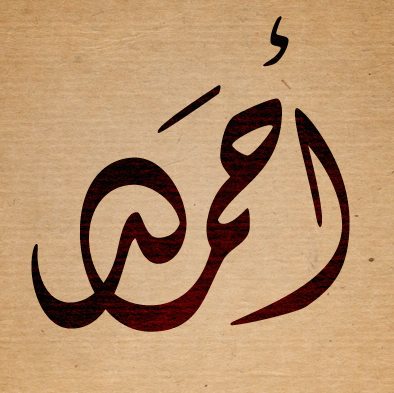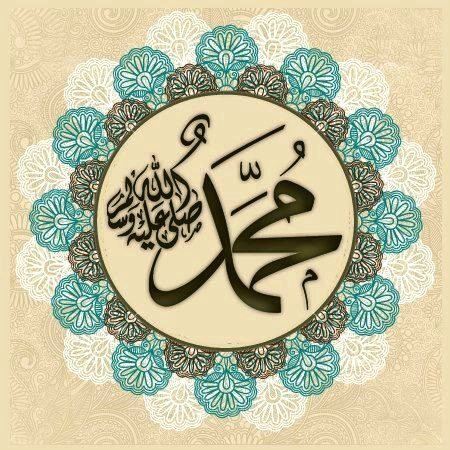Key Hadiths on the Names of the Noble Prophet ﷺ
For more on this topic, register for our free weekly class “Seekers Night Class: Studying the Life of the Prophet” with Shaykh Faraz Rabbani
From the Chapter on the Names of our Master Muhammad (peace and blessings be upon him) from Imam Tirmidhi’s Shama’il with Commentary from Shaykh al-Hadith Mawlana Zakariyya al-Kandahlawi
Many titles according to their meanings were bestowed on the Messenger of Allah (peace and blessings be upon him) in his honour and praise.
Qadi Abu Bakr Ibn al-Arabi has mentioned a thousand names in his commentary on Tirmidhi. Imam Suyuti has written a special book on the names of the Messenger of Allah (peace and blessings be upon him), in which he has mentioned about five hundred names.
In hadith, at special occasions special names have been mentioned. All the names are not compiled in one hadith.
In a hadith, the Prophet (Allah bless him and give him peace) stated that, “Seven of my names are mentioned in the Qur’an.” These names mentioned in the Qur’an—Muhammad, Ahmad, Ya-Sin, Ta-Ha, Muzammil, Mudaththir, and ‘Abdullah—all afirm great honour and respect.
Imam Tirmidhi generally mentions only a few hadiths as examples in every chapter of this work. In this chapter too, he has mentioned only two hadith, in which nine names of the Messenger of Allah (peace and blessings be upon him) appear.
Hadith One:
360. Jubayr bin Mut’im (Allah be pleased with him) says: The Messenger of Allah (peace and blessings be upon him) said: “I have many names, I am Muhammad, I am Ahmad, I am the Eraser (al-Mahi) through whom Allah clears disbelief. I am the Gatherer (al-Hashir), whom Allah will raise first on the Day of Resurrection—and the whole Umma will be judged before my feet on the day of Resurrection. I am Final One (al-`Aqib), after whom there shall be no other prophet.”
Commentary
The last three names are mentioned with their reasons. The reasons for the first two names are not mentioned in the narration. Apparently it seems the first two are names, and the others are attributes. Or it may be that there are many reasons for these names, or the reasons for it may be clear.
[One: Muhammad]
The scholars have written that Muhammad is an emphasic form of hamd, which means (1) praised abundantly and (2) the most praiseworthy. This is due to his countless virtues; or because Allah Himself praised the Messenger of Allah (peace and blessings be upon him) numerous times [in the Qur’an], as did the past prophet, the angels, and righteous believeers.
Muhammad could also be an example of optimistic affirmation (tafa’ul) that he be praised profusely.
Or because the past and present, all the people praise the Messenger of Allah (peace and blessings be upon him).
And on the Day of Resurrection all will be under his banner, which will be known as the Banner of Praise (liwa’ al-hamd).
[Two: Ahmad]
The meaning of Ahmad is the one who praises most. The meaning of it may also be the one who is the most praised…
 According to this, it will mean that the Messenger of Allah (peace and blessings be upon him) praised Allah the most, which according to this world is apparent, and there is no doubt about this in the hereafter.
According to this, it will mean that the Messenger of Allah (peace and blessings be upon him) praised Allah the most, which according to this world is apparent, and there is no doubt about this in the hereafter.
On the day of qiyaamah, the Banner of Hamd will be in the hands of the Messenger of Allah (peace and blessings be upon him). The Most-Praised Station (al-maqam al-mahmud) is for the Messenger of Allah (peace and blessings be upon him).
At the time of seeking intercession (maqam al-shafa`a), [when all creation is seeking relief from the awe of the Standing], it is the Messenger of Allah (peace and blessings be upon him) who will praise Allah so much and so emphatically that no one before him had ever praised Allah as much.
The Messenger of Allah (peace and blessings be upon him) has said: “At that time. I will be inspired to praise Allah Most High with praise not inspired to me before this moment’.
The scholars have written that Muhammad is a special name of the Messenger of Allah (peace and blessings be upon him), which was not kept before by the people. When the time for the birth of the Messenger of Allah (peace and blessings be upon him) dawned, some people hoped that their children become worthy of the glad tidings that were mentioned in the past scriptures. Due to this, they started keeping the name Muhammad thinking that this child would be this promised prophet. But “Allah knows best where to place His Prophethood.” [Qur’an]
Hadith Two:
361.Hudhayfah (Allah be pleased with him) reports: I once met the Messenger of Allah (peace and blessings be upon him) on one of the paths of Madinah. He said, “I am Muhammad, and I am Ahmad, and I am the Prophet of Mercy, the Prophet of Repentance, I am the Closing (al-Muqaffi), I am the Gatherer (al-Hashir), and the Prophet of Rigours (Nabi al-Malahim).”
Commentary
These names were specially mentioned by the Prophet (Allah bless him and give him peace), because they used to foretell the coming of the Beloved Messenger of Allah (peace & blessings be upon him & his folk) in the previous prophetic revelations.
The People of the Book recognised the Messenger of Allah (peace and blessings be upon him) by these names and attributes.
[Three: The Prophet of Mercy (Nabi al-Rahma]
The first name mentioned is the Prophet of Mercy (Nabi al-Rahma). Allah Most High has attributed and made his noble soul a source of mercy for the Muslims and non-Muslims. It is stated in the Noble Qur’an:
“We have sent you only as mercy to all creation.” [Qur’an, 21.107]
The Messenger of Allah (peace and blessings be upon him) being a mercy to the Muslims is clear, as they will receive his intercession in the world and the hereafter. He is also a mercy for non-believers, in that they were not punished in this world as had been the case with previous peoples, due to the grace and kindness of the Messenger of Allah (peace and blessings be upon him).
It had been promised in the Qur’an that the non-believers will not be punished whilst the Messenger of Allah (peace and blessings be upon him) is amongst them.
If the religious way (deen) of the Messenger of Allah (peace and blessings be upon him) remains, order and tranquility will continue to remain. When there will not be a single person left in this world, who will say Allah, the world will fall into chaos and Resurrection will take place.
The Messenger of Allah (peace and blessings be upon him) was sent as a prophet to the entire world—he was not sent to a certain tribe or community. In this respect too, he is a mercy unto mankind.
Those who wish may become part of this mercy. the Messenger of Allah (peace and blessings be upon him) also came as a teacher of love and kindness between the people and to teach brotherhood. Considering this, too, he was a prophet of mercy.
The doors of Allah’s Mercy are open because of our Beloved Messenger (peace and blessings be upon him). He conveyed the message of Allah’s Mercy and glad tidings. According to this, too, he is a prophet of mercy.
[Four: The Prophet of Repentance (Nabi al-Tawba)]
The second name of the Messenger of Allah (peace and blessings be upon him) is the Prophet of Repentance (Nabi al-Tawba).
He is the Prophet of Repentance because the condition of forgiveness of sins for his community is only that they repent sincerely. Previous prophetic communities had far more stringent conditions and required actions for forgiveness and repentance—such that some sins were only forgiven if they killed themselves, for example.
The Messenger of Allah (peace and blessings be upon him) commanded his ummah to repent frequently. He himself also repented frequently. Among these reasons, every reason indicates that the Messenger of Allah (peace and blessings be upon him) was the Prophet of Repentance.
[Five: The Closing (al-Muqaffi)]
He is also the Closing (al-Muqaffi), meaning (1) the one that will come last, after whom shall be no other prophet—or that (2) he will follow the way of the previous prophets.
The scholars have stated both meanings. The implication of the second meaning is that he confirmed the teachings of the previous prophets about Divine Oneness (tawhid) and other religious fundamentals.
All the prophets came with the same message regarding Divine Oneness, the fundamentals of religion, and the essential virtues and good character. They differed in some practical aspects.
 [Six: The Gatherer (al-Hashir)]
[Six: The Gatherer (al-Hashir)]
Another name mentioned in this hadith is the Gatherer (al-Hashir), which has been explained in the previous hadith.
[Seven: The Prophet of Rigours (Nabi al-Malahim)]
The Messenger of Allah (peace and blessings be upon him) is also the Prophet of Battle (Nabi al-Malahim). In Arabic, malhama is a war in which fierce battle takes place. The reason for this title is clear, as the number of wars that took place in the time of Prophet (Allah bless him and give him peace) and after him with his ummah, did not take place during the times of the previous ummahs.
It will always remain so with this ummah. the Messenger of Allah (peace and blessings be upon him) had prophesied that, “Jihad will continue in my community till the Day of Resurrection. The last among the ummah will go to war against the Antichrist (al-Dajjal).”
Some of the scholars are of the opinion that the meaning of this word (malhama) is unity and healing, and the unity that was experienced among the ummah of the Prophet Muhammad (Allah bless him and give him peace) previously, and despite all the differences of this age, unity is still experienced. This type of unity is not found to have remained for such a long time.
The meaning of malhamah is also a great calamity. According to this meaning also, this name of the Messenger of Allah (peace and blessings be upon him) is apt, because this community will face many great and difficult calamities till the Day of Resurrection—trials and calamities the like of which were not experienced by the community of any prophet.
Considering just the tribulation (fitna) the Antichrist (al-Dajjal), is beyond comprehension. The Prophet (Allah bless him and give him peace) mentioned that from the time of the Prophet Nuh (peace be upon him), every Prophet warned their respective communities regarding the tribultion of the Antichrist (fitnat al-Dajjal). In the same manner the great mischief of Gog and Magog (Ya’juj and Ma’juj) and the other signs of the Last Days will take place, the signs of which are beginning to appear.
